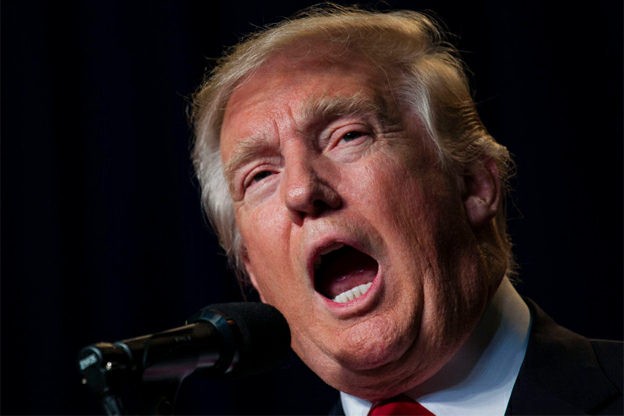

What happened to the rule of law?
I haven’t written anything for a long time. I will amend that; I haven’t written anything at LeftMN for a long time. I have been busy with lawyering stuff, though, about which you will undoubtedly hear more later.
Since last we’ve spoken my friends, Donald Trump has become our president. Opinions about President Trump are mixed and rarely neutral. Elections have consequences, as they say, but his reaction to the judicial resistance to his immigration exclusion order is chilling, to put it mildly. It shakes the Republic to its foundations. The situation is not unprecedented, but it is unusual.
Reams on the subject have been written, more learned, well, some of them anyway, than I could offer. But here’s a, gulp, tweet from our president early in the exclusion order dust up:
The opinion of this so-called judge, which essentially takes law-enforcement away from our country, is ridiculous and will be overturned!
— Donald J. Trump (@realDonaldTrump) February 4, 2017
When the Ninth Circuit upheld the suspension (contrary to President Trump’s prognostication) of the exclusion order, President Trump tweeted:
SEE YOU IN COURT, THE SECURITY OF OUR NATION IS AT STAKE!
— Donald J. Trump (@realDonaldTrump) February 9, 2017
Which is a curious thing to say to a bunch of judges. I, for one, have never said it to a judge who issued an order I didn’t like.
It seems counterproductive, really. It has produced a lot Twitter memes, though. Perhaps my favorite: Oh, please Br’er Trump, don’t throw us judges in the court! The president has said that Twitter is his way of communicating with the American people; well it’s our way of communicating with him, too. Twitter is the perfect expression of the president’s id.
Maybe President Trump may be forgiven for being ignorant of Marbury v. Madison (but maybe not); it’s part of the foundations of the Republic that was shaken. But for the benefit of our president — and any of you who might like a refresher — here’s an installment of a C-Span series on important constitutional cases discussing Marbury v. Madison. If you don’t want to watch the whole thing, you might stick it out for the remarks of Chief Justice John Roberts at the beginning. Because of Marbury, it is up to the judiciary, not Donald Trump, to determine the constitutionality of his executive immigration exclusion order.
Without Marbury, Donald Trump is just another strong man, and the U.S. is just another banana republic, without the bananas, of course. I’d venture to say that your average successful applicant for naturalization understands this better than our president.
Aside from the Marshal’s Service, the federal courts don’t have an enforcement arm. The courts depend, really, on the respect for their role by other two branches. There are stories that the Department of Homeland Security and ICE have ignored court orders suspending the executive order multiple times.
Lincoln suspended the writ of habeas corpus during the Civil War; Roosevelt interned thousands of our Asian citizens during the Second World War. These are not proud chapters in our history, and we seem to be on the brink of doing it again.
My favorite defense of the rule of law comes from Robert Bolt’s play, A Man for All Seasons. Sir Thomas More (a lawyer, by the way) lost his position as Chancellor of England, and ultimately his head, over his refusal to approve the divorce of Henry VIII so Henry could marry Ann Boleyn. (More was himself hard on heretic followers of the German Monk, but for our purposes, never mind.) Here’s a famous dialogue from the play between More and his future son-in-law:
Roper: So now you’d give the Devil benefit of law!
More: Yes. What would you do? Cut a great road through the law to get after the Devil?
Roper: I’d cut down every law in England to do that!
More: Oh? And when the last law was down, and the Devil turned round on you — where would you hide, Roper, the laws all being flat? This country’s planted thick with laws from coast to coast — man’s laws, not God’s — and if you cut them down — and you’re just the man to do it — d’you really think you could stand upright in the winds that would blow then? Yes, I’d give the Devil benefit of law, for my own safety’s sake.
Who knows if More actually said it, but it’s nice to think so. Parenthetically, it has always been interesting to me that in the play More’s defense is of positive law, not “natural” law.
The rule of law has fallen in and our of favor; it seems to be out at the moment. This, too, will pass, I think. But I think it will pass faster by impressing our citizens that its defense is the defense of ourselves, too.
Thanks for your feedback. If we like what you have to say, it may appear in a future post of reader reactions.

